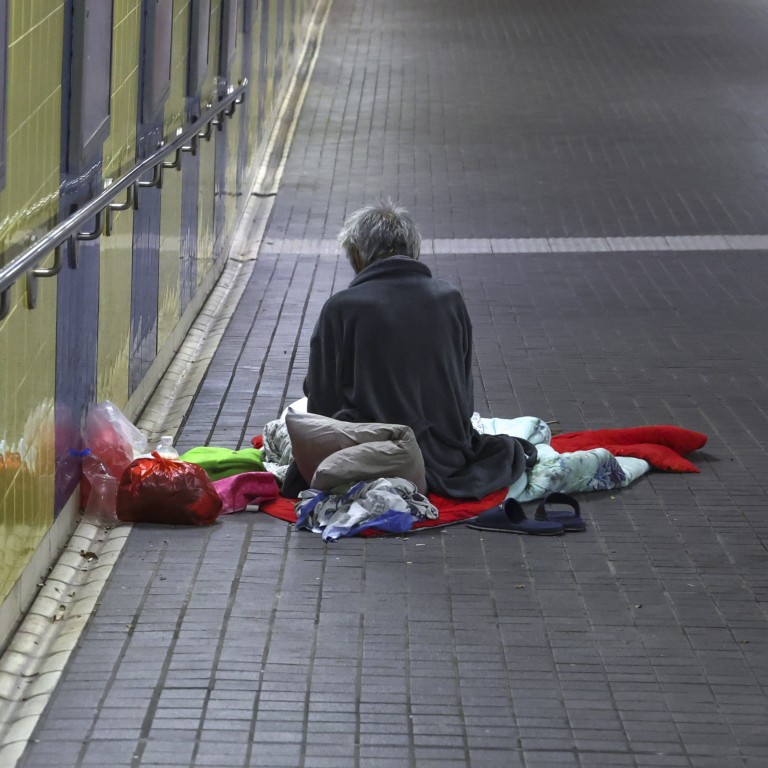
Half of Hong Kong’s street sleepers have symptoms of post-traumatic stress disorder but get little support, survey finds
- Study by ImpactHK, an organisation for the homeless, and Shue Yan University finds many homeless people show symptoms of other mental problems as well
- Survey organisers say there is just one psychiatric nurse in each of the three government-funded outreach teams for the homeless
Almost half of Hong Kong’s street sleepers show symptoms of post-traumatic stress disorder (PTSD), but just three psychiatric nurse posts exist in outreach teams funded by the government, a survey has found.
The study results, released on Wednesday, discovered that 45 per cent of street sleepers showed symptoms of PTSD, a mental illness characterised by intense reactions linked to earlier experiences, and 60 per cent said they had suffered abuse at a variety of levels.
“Homelessness itself is a painful experience, they often face stress, violence, social isolation, and discrimination, and they are deprived of basic necessities and social support – these could all worsen the PTSD conditions,” she said.
“Meanwhile, the symptoms of PTSD will impede their abilities to build a stable life, like finding a job.”

The survey was carried out by the university and ImpactHK, an NGO dedicated to helping the homeless.
The two organisations carried out interviews with 89 homeless people between January and July this year.
A 48-year-old former street sleeper, identified only as Yin and speaking at an event to publicise the survey, said it was important for society to remove the stigma of homelessness and end discrimination against people who found themselves without a permanent roof over their heads.
He said he had been abandoned at birth, spent his childhood in orphanages and became a drug addict in his teenage years after he fell into bad company.
Yin admitted he had been in and out of jail countless times since he turned 21, and, after his last jail sentence, which ended five years ago, he experienced two major traumas – becoming homeless and suffering major leg, arm and rib injuries after he fell off a building.
Hong Kong advocacy group calls for more psychiatric support for homeless residents
But he said, with the help of NGOs, he moved into a hostel for the homeless and got back on his feet by working for ImpactHK, where he had been a volunteer for a year.
“I had to bear a lot of discrimination and unkind words … I hope people can have more faith in us and give us a chance,” Yin added.
“The support and care I received were what kept me motivated to quit drugs and find a new life.”
Symptoms of PTSD include flashbacks and nightmares, as well as physical conditions like sweating and nausea.
No festive cheer for Hong Kong’s homeless who seek refuge from cold in shelters
Deep Ng Siu-hong, a senior programme manager at ImpactHK, appealed to authorities to deploy more psychiatrists or clinical psychologists to provide professional counselling and treatment services for the homeless.
Ng said community centres operated by the Social Welfare Department to support people recovering from mental problems existed, but that some might not accept homeless people.
He added the government should take the lead in the introduction of homeless-friendly policies, which he said were crucial to ending stigmatisation and improving the mental health of those without shelter.
The number of registered street sleepers in March stood at 1,441, down from 1,564 last year, but there is only one psychiatric nurse attached to each of the three government-funded integrated services teams for the homeless.
There are a total of 626 places in emergency and short-term accommodation for street sleepers, with the department funding 228 of them and NGOs providing 398.

